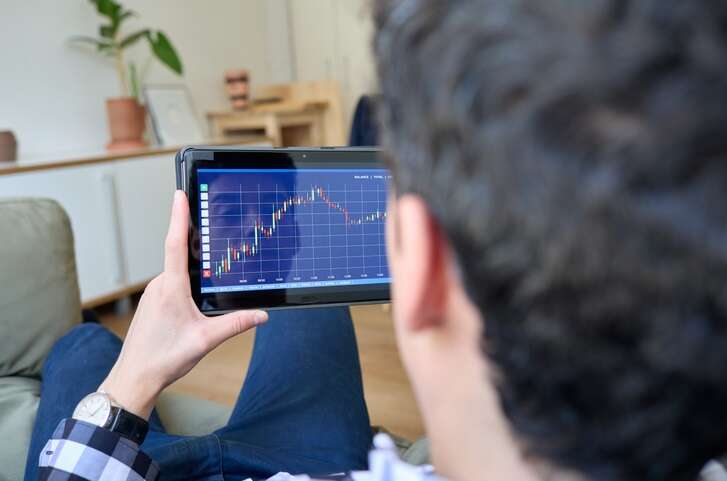
How to trade forex for beginners
Forex trading, often referred to as the foreign exchange market, is a vast and dynamic financial arena where the world’s currencies are bought and sold. This introductory section aims to provide a foundational understanding of forex trading by addressing three core aspects: What is Forex Trading? Why Trade Forex? and the associated Risks and Rewards.
Introduction
Forex trading, often referred to as the foreign exchange market, is a vast and dynamic financial arena where the world’s currencies are bought and sold. This introductory section aims to provide a foundational understanding of forex trading by addressing three core aspects: What is Forex Trading? Why Trade Forex? and the associated Risks and Rewards.
What is Forex Trading?
At its core, forex trading involves the exchange of one currency for another with the aim of making a profit. This is typically done in currency pairs, where one currency serves as the base, and the other as the quote currency. For example, in the EUR/USD pair, the Euro is the base currency, and the US Dollar is the quote currency. The exchange rate represents how much of the quote currency is needed to purchase one unit of the base currency.
Forex trading occurs in a decentralized market, meaning there is no central exchange. Instead, it operates electronically through a global network of banks, financial institutions, governments, corporations, and individual traders. This market operates 24 hours a day, five days a week, making it highly accessible and offering flexibility to traders across different time zones.
Why Trade Forex?
- High Liquidity: The forex market is the most liquid in the world, with daily trading volumes exceeding $6 trillion. High liquidity ensures that traders can enter and exit positions with minimal slippage.
- Accessibility: Forex markets operate around the clock, allowing traders to choose the most suitable trading hours for their schedule. This accessibility caters to traders with various time commitments.
- Low Transaction Costs: Most forex brokers charge minimal or no commissions on trades. They make profits from the spread, which is the difference between the buy and sell prices of a currency pair.
- Leverage: Forex trading offers leverage, enabling traders to control larger positions with a relatively small amount of capital. However, it’s important to use leverage wisely, as it can amplify both gains and losses.
Risks and Rewards:
While forex trading offers significant opportunities for profit, it also comes with inherent risks:
- Market Volatility: The forex market can be highly volatile, with prices subject to rapid and unpredictable fluctuations. This volatility can result from economic data releases, geopolitical events, or market sentiment shifts.
- Leverage Risk: While leverage can magnify profits, it also increases the potential for significant losses. Traders must understand the risks associated with leverage and use it cautiously.
- Psychological Challenges: Emotions, such as fear and greed, can impact trading decisions. Maintaining discipline and emotional control is crucial for success.
- Lack of Education: Insufficient knowledge about the market, trading strategies, and risk management can lead to poor decision-making and losses.
Getting Started
- Setting Up a Forex Trading Account
Before you can start trading forex, you must open a trading account with a reputable forex broker. Research and choose a broker that aligns with your trading goals and preferences. Registration typically involves providing personal and financial information and may require identity verification.
- Choosing a Reliable Forex Broker
Selecting the right broker is crucial for your trading experience. Consider factors such as regulation, trading platforms, spreads, leverage, fees, and customer support. A regulated broker ensures the safety of your funds and adherence to industry standards.
- Understanding Forex Currency Pairs
Forex trading revolves around currency pairs. Each pair consists of two currencies, one being the base and the other the quote currency. Understanding currency pairs is fundamental, as it dictates which markets you can trade and influences your trading strategy. Major, minor, and exotic currency pairs all have their unique characteristics and trading opportunities.
Forex Basics
- What are Pips and Lots?
Pips and lots are essential units of measurement in forex trading. A pip represents the smallest price movement in a currency pair, typically the fourth decimal place for major pairs. Lot sizes determine the volume of your trades, with standard lots equaling 100,000 units of the base currency, mini lots at 10,000 units, and micro lots at 1,000 units. Understanding pips and lots is crucial for calculating profits and losses.
- How Leverage and Margin Work
Leverage allows traders to control larger positions with a fraction of their capital. Margin, on the other hand, is the collateral required to open and maintain leveraged positions. While leverage can amplify gains, it also increases potential losses. Effective risk management is vital when using leverage to protect your account from significant drawdowns.
- Forex Market Participants
The forex market is a diverse ecosystem with various participants, including central banks, commercial banks, institutional investors, retail traders, and more. Understanding the roles and motivations of these market participants can provide valuable insights into market dynamics and price movements.
Practice with a Demo Account
Benefits of Using a Demo Account
Demo accounts offer a risk-free environment for traders to hone their skills, test strategies, and become familiar with trading platforms. Key benefits include practicing without financial consequences, experimenting with different approaches, and building confidence.
- How to Open and Use a Demo Account
Opening a demo account is straightforward and typically involves registering with a broker, downloading a trading platform, and using virtual funds to simulate real trading conditions. Practicing on a demo account is an essential step for beginners to gain experience and develop their trading abilities.
- Developing Trading Skills
While using a demo account, traders should focus on developing essential skills, including technical analysis, fundamental analysis, risk management, and emotional discipline. These skills form the foundation of successful forex trading and require ongoing practice and refinement.
Creating a Trading Plan
- Setting Trading Goals
Define clear and realistic trading goals based on your financial objectives and risk tolerance. Establishing specific goals helps guide your trading decisions and keeps you accountable.
- Risk Tolerance and Capital Allocation
Understand your risk tolerance and allocate your trading capital accordingly. Determine how much you are willing to risk on each trade and ensure it aligns with your overall financial situation and objectives.
- Defining Your Trading Strategy
A trading strategy outlines your approach to the market, including entry and exit criteria, timeframes, and the use of technical and/or fundamental analysis. Your strategy should align with your goals and risk tolerance.
Staying Informed
- Market News and Events
Stay updated on economic news releases, central bank decisions, geopolitical developments, and other events that can impact currency markets. Timely information can help you anticipate market moves.
- Trading Hours and Market Sessions
The forex market operates 24 hours a day, but it’s divided into different trading sessions, including the Asian, European, and North American sessions. Understanding the overlaps between these sessions can help you identify optimal trading times.
- Resources for Ongoing Learning
Forex trading is a continuous learning process. Explore educational resources, including books, online courses, webinars, and forums, to expand your knowledge and stay up-to-date with industry trends and best practices.
In conclusion, this comprehensive guide to forex trading has provided valuable insights into the dynamic and accessible nature of the forex market. Key takeaways include understanding the fundamentals, selecting a reliable broker, mastering concepts like pips and lots, utilizing demo accounts for practice, and emphasizing the importance of a well-structured trading plan and effective risk management. Forex trading presents substantial profit potential, but it is a journey that demands dedication, discipline, and continuous learning. While financial freedom is within reach, it’s essential to acknowledge the associated risks. Success in forex trading hinges on proper education, consistent practice, and a disciplined approach. Always remember that forex trading carries inherent risks, and it’s possible to lose more than your initial investment. To navigate this landscape responsibly, employ risk management tools, stay informed, maintain emotional discipline, and trade only with capital you can afford to lose. Seek professional advice if needed, as forex trading is not a guaranteed path to wealth, but with the right knowledge and approach, it can be a rewarding endeavor.


